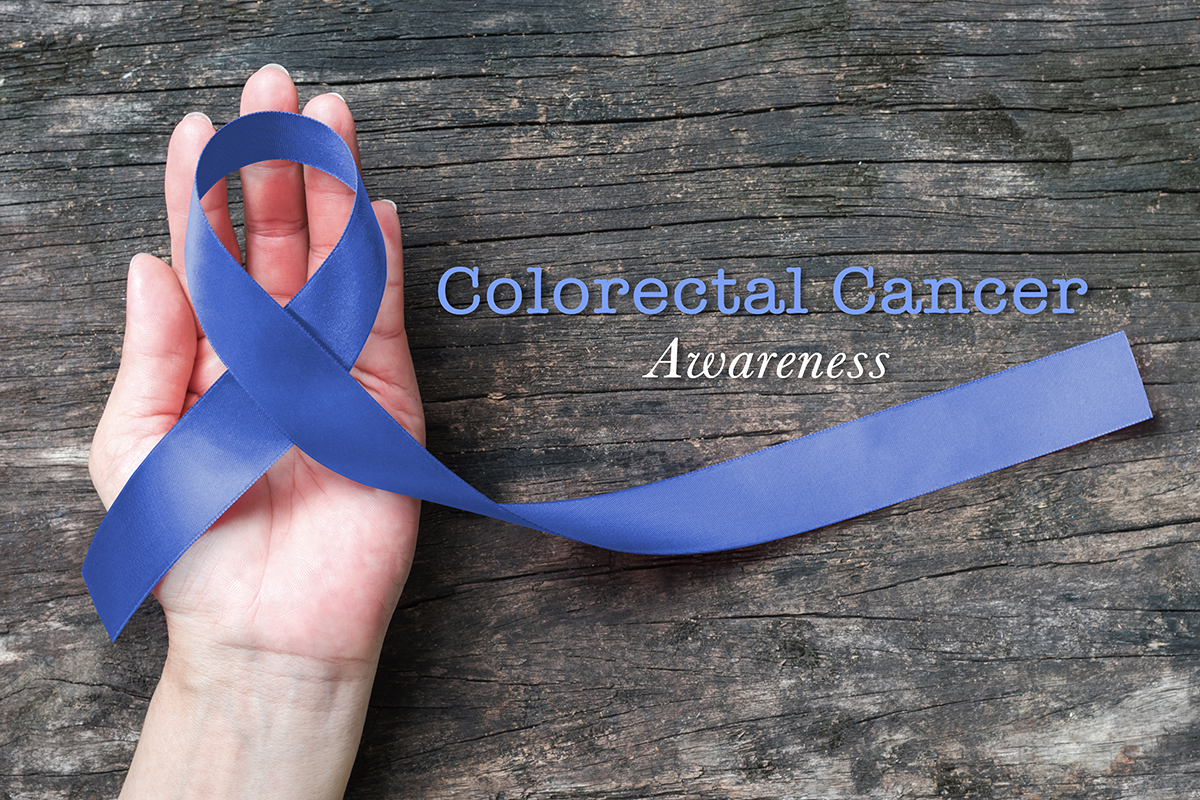March is Colorectal Cancer Awareness Month, a good time to learn about this disease and to explain some very important facts about your health.
At more than 50,000 deaths per year in the United States, colorectal cancer is the second-deadliest type of cancer, after lung cancer. Colorectal cancer is cancer of the colon (which is the longest part of the large intestine) and/or the rectum (which is also in the large intestine, but the last few inches before the anus).
People who are diagnosed with this disease often have no signs or symptoms. However, symptoms can include any of the following:
- Blood in your stool or dark stools
- Bowel never completely empties despite feeling the need to do so
- Constipation, diarrhea or thinner stools than usual
- Cramping or belly pain
- Nausea or vomiting
- Ongoing gas, pain, cramps or feeling bloated
- Rectal bleeding
- Unintended weight loss
- Weakness or fatigue
Precancerous polyps are almost always the way colorectal cancer develops. Polyps are abnormal growths on the inner lining of the rectum or colon. Colon cancer screening tests can find these polyps so they can be removed before cancer occurs. If the polyps have turned cancerous, regular screening may catch these earlier, when treatment is more effective.
Colon Cancer Screening Guidelines
When a person has any of the above symptoms, they get diagnostic tests. These are done to find out what is causing the symptoms. Screening tests are done to look for signs of a disease in people without symptoms.
Colon cancer screening guidelines are as follows: Adults ages 50 to 75 should be screened for colorectal cancer, according to the recommendation by the U.S. Preventive Services Task Force (USPSTF). People ages 76 to 85 should speak to their doctor about whether or not they should be screened. People 85 or older should no longer get this screening.
The American Cancer Society (ACS) now recommends that people of average risk for colorectal cancer should begin their regular screening at age 45. That’s because in 2018, the ACS released a study that found a big increase in colon and rectal cancer in younger adults.
There are a number of different types of screening tests. You can talk to your healthcare provider about which test is right for you.
Flexible Sigmoidoscopy
This test examines the rectum and lower part of the colon. A doctor inserts a thin, flexible, lighted tube into the rectum to look for polyps. This test done every five years, or every ten years when also using a once-a-year FIT test.
Colonoscopy
Colonoscopy is considered the best colorectal cancer screening test because it gives a view of the entire colon and can both find and remove polyps and some cancers during the same procedure. It is the only test recommended for individuals who have colorectal cancer risk factors such as family history of the disease.
A colonoscopy is similar to flexible sigmoidoscopy, except the doctor uses a longer, thin, flexible, lighted tube to check for polyps or cancer inside the rectum and the entire colon. This test is recommended every 10 years for those people not at increased risk of colorectal cancer, and more often in those with risk factors.
CT Colonography (Virtual Colonoscopy)
Also called a virtual colonoscopy, this test uses X-rays and computers to create images of the entire colon. The doctor then examines them on a computer screen. This test is recommended every five years.
If any of the above screening tests besides a colonoscopy result in unusual findings, you will need to do a follow-up colonoscopy anyway to further investigate.
Stool tests
The guaiac-based fecal occult blood test (gFOBT) uses the chemical guaiac to detect blood in the stool. It is done once a year, at home with a test kit. The kit is returned to the doctor or clinic with a stool sample, which is checked for the presence of blood.
The fecal immunochemical test (FIT) uses a different way to check for blood in the stool, but it is done the same way as the above gFOBT.
The FIT-DNA test (also referred to as the stool DNA test) is also done at home, every three years, but for this test, you collect an entire bowel movement. A lab then checks it for cancer cells.
It is important to note that at home tests may not be covered by your health plan, so be sure to talk with your provider about whether this test would be right for you as well as if the cost would be covered under your health plan benefits.
Are You Being Screened?
Millions of people in the United States are not getting the recommended colorectal cancer screening tests. This is unfortunate, as these screenings can prevent the disease or treat it early, which means the best chance for a cure.
Higher Risk Population
According to the American Society for Gastrointestinal Endoscopy (ASGE), African-Americans are diagnosed with colorectal cancer at a younger age than any other group. Experts recommend beginning screening for African-Americans at age 45, and perhaps earlier or more often if there is a family history of the disease, the presence of polyps or a history of inflammatory bowel disease. The best screening recommendations can be made by a healthcare provider.
Go Forward Without Fear!
Over half of Americans who make a colonoscopy appointment end up cancelling it because they’re afraid of the procedure. But colonoscopies have in recent years greatly improved, with easier bowel prep. And the actual procedure is done under sedation and is completely painless. Talk to a family member or friend who has undergone a colonoscopy, a proven way to ease your mind.
 Did you know that your IE browser is outdated?
Did you know that your IE browser is outdated?






